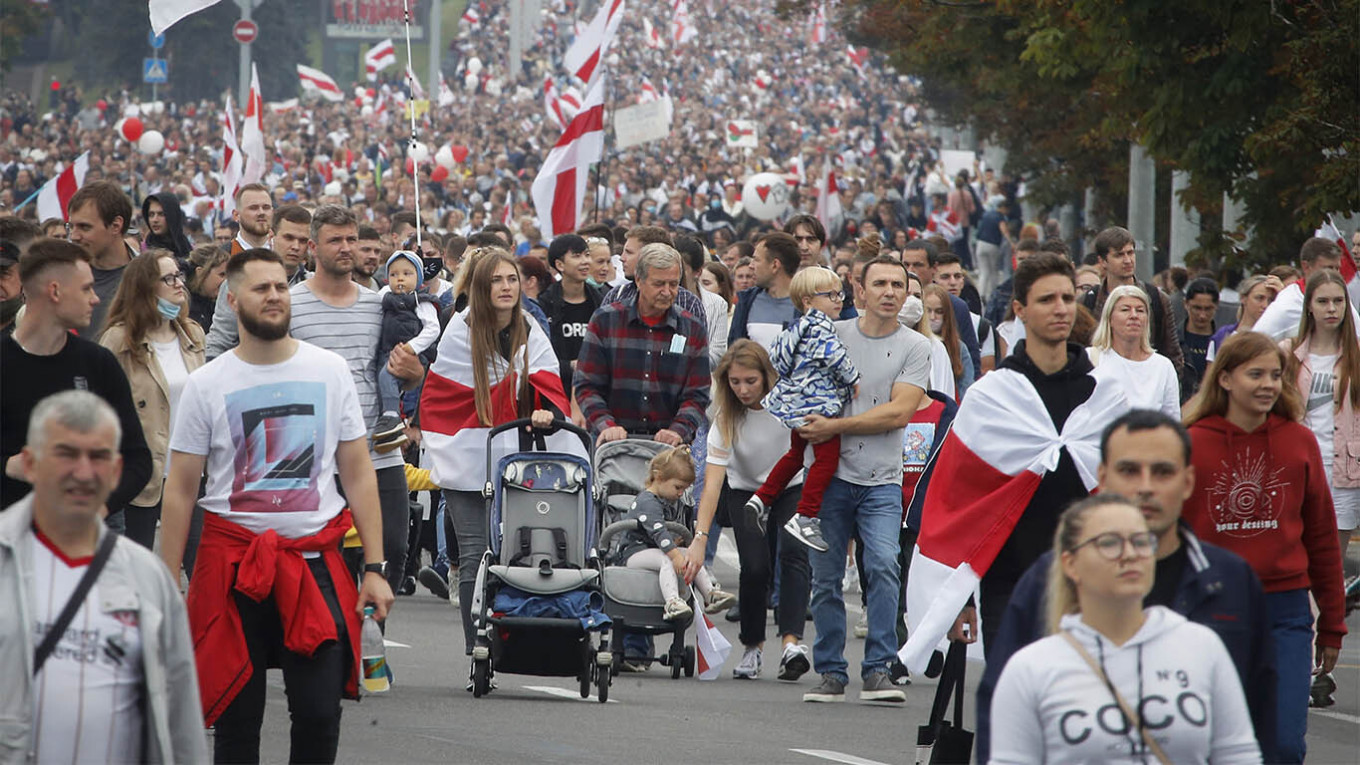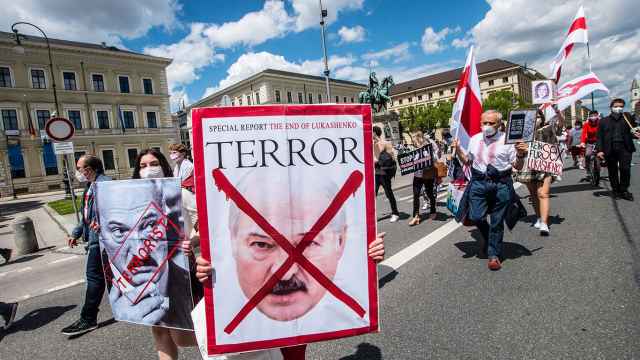Exiled opposition leader Svetlana Tikhanovskaya told the EU parliament on Tuesday that a "peaceful revolution" was under way in Belarus after huge protests broke out over disputed presidential elections.
The strongman leader of ex-Soviet Belarus Alexander Lukashenko claimed a sixth term in Aug. 9 elections that sparked historic street rallies and a violent police crackdown condemned by rights groups and Western leaders.
"A peaceful revolution is taking place," Tikhanovskaya, 37, told EU parliamentarians, speaking in English via video link from Lithuania, where she fled after claiming victory in the ballot, fearing reprisals from the authorities.
The trained English teacher who was allowed to contest the vote after her husband was jailed and barred from running said that the mass protest movement had no geopolitical aims.
"It is neither a pro-Russian nor anti-Russian revolution. It is neither an anti-European Union nor a pro-European Union revolution. It is a democratic revolution," she said.
Lukashenko, Europe's longest-serving leader, detained his closest rivals in the run-up to the vote which he barred independent observers from monitoring.
Hundreds of thousands of people have taken to the streets since election officials announced that the 65-year-old authoritarian leader had won a landslide victory with some 80% of the ballot.
Tikhanovskaya described the largest protests in Belarus's post-Soviet history as "a peaceful striving of the people for self-determination and basic dignity."
"The demand of Belarusians is simple: a free and fair election," she said. "This is the wish of the whole nation."
Several members of the opposition's Coordination Council that is seeking new elections have been arrested in recent days or summoned for questioning after Lukashenko accused them of attempting to "seize power."
A Message from The Moscow Times:
Dear readers,
We are facing unprecedented challenges. Russia's Prosecutor General's Office has designated The Moscow Times as an "undesirable" organization, criminalizing our work and putting our staff at risk of prosecution. This follows our earlier unjust labeling as a "foreign agent."
These actions are direct attempts to silence independent journalism in Russia. The authorities claim our work "discredits the decisions of the Russian leadership." We see things differently: we strive to provide accurate, unbiased reporting on Russia.
We, the journalists of The Moscow Times, refuse to be silenced. But to continue our work, we need your help.
Your support, no matter how small, makes a world of difference. If you can, please support us monthly starting from just $2. It's quick to set up, and every contribution makes a significant impact.
By supporting The Moscow Times, you're defending open, independent journalism in the face of repression. Thank you for standing with us.
Remind me later.






